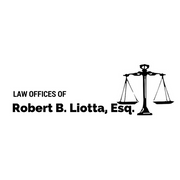What Happens If Someone Dies Without an Estate Plan?

Estate planning is one of the most effective ways to prepare your financial and personal matters in case you pass on or become incapacitated. A proper estate plan allows you to specify how your assets and liabilities will be managed and distributed, and it also handles other decisions you may want to be carried out in the future. Below is an overview of why having an estate plan is important and what may happen if you pass away without one.
How Will Your Properties Be Distributed Without an Estate Plan?
If you pass on without an estate plan, you lose the opportunity to communicate your wishes regarding how your assets should be allocated. Instead, a court makes this decision for you according to your state's intestacy laws. If you have a spouse and children, Pennsylvania law states that your spouse will inherit the first $30,000 of your property and half of the balance, while your descendants inherit the rest. While intestate law generally favors heirs-at-law— usually your immediate family members—the judgment may not be what you would have wanted.
 Your property will also undergo probate proceedings if you lack an estate plan. This involves identifying all your assets, debts, and heirs, and the court will see to it that dues are settled before distributing the remaining property to legal heirs. Your loved ones may have to shoulder significant fees during probate proceedings if they decide to challenge the court's decision. On top of everything else, a conservatorship or guardianship may be established if you don’t develop an estate plan. This means another person, or a conservator, will be appointed to make decisions for you when you are deemed incapacitated or unable to handle your own affairs.
Your property will also undergo probate proceedings if you lack an estate plan. This involves identifying all your assets, debts, and heirs, and the court will see to it that dues are settled before distributing the remaining property to legal heirs. Your loved ones may have to shoulder significant fees during probate proceedings if they decide to challenge the court's decision. On top of everything else, a conservatorship or guardianship may be established if you don’t develop an estate plan. This means another person, or a conservator, will be appointed to make decisions for you when you are deemed incapacitated or unable to handle your own affairs.
What Are the Benefits of Estate Planning?
Estate planning lets you draft a will or trust and have a power of attorney in place. These essential legal tools can ensure your property will be handled and transferred according to your wishes. Additionally, a power of attorney allows you to appoint a person or organization who can make decisions for you when you're no longer capable of doing so.
You can reduce or remove estate taxes if you include AB trusts or ABC trusts in your revocable living trust or will. However, the most effective way to protect your beneficiaries and prevent family disputes is to clearly express your plans for your properties and other assets through your estate plan.
When it comes to estate planning, trust a compassionate and experienced attorney from the Law Offices Of Robert B. Liotta, Esq. in Lower Burrell, PA, to provide you with skillful legal guidance. For more than a decade, Robert Liotta has guided clients through cases involving estate planning, real estate, personal injury, will, trust, and divorce. Call him today at (724) 334-9870 to schedule an appointment, or learn more about his practice areas online.
About the Business
Have a question? Ask the experts!
Send your question

